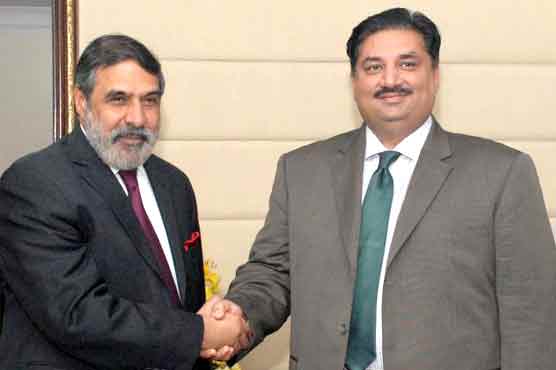Pakistan, India agree to normalise trade ties

The third round of Pak-India joint business forum will take place in Pakistan in mid of next month.
NEW DELHI (Web Desk) - In a major decision that could smoothen trade between India and Pakistan, the two sides have decided to open the Wagah-Attari border for trade 24x7 and allow containers to be moved right up to Amritsar and Lahore instead of being unloaded at the check-post and re-loaded on the other side.
In a meeting between Commerce Ministers from both countries on Saturday, it was decided to re-start the trade liberalisation process stalled for 16 months and work towards non-discriminatory market access on a reciprocal basis.
“We have also decided to expedite the process of giving banking licences so that Indian and Pakistani banks can operate in the other country. This would facilitate trade,” Indian Commerce & Industry Minister Anand Sharma said, addressing a joint press conference after the meeting.
When asked why Pakistan wanted to replace the term Most Favoured Nation (MFN) treatment with Non-Discriminatory Market Access, Pakistani Commerce Minister Khurram Dastgir Khan said it essentially meant the same and would result in the seamless flow of goods between the two countries.
At present, bilateral trade between India and Pakistan is a little over $3 billion annually, but both sides are hopeful that trade would go up several times as a result of the trade liberalisation process.
India has also agreed to look into the process of liberalising issue of visas to Pakistani businesspersons both bilaterally and under the South Asia Free Trade Agreement.
India and Pakistan had started negotiations to normalise trade ties in January 2011 and had made several concessions for each other before the talks came to an abrupt halt due to violence across the Line of Control.
Pakistan is yet to extend Most Favoured Nation (MFN) status or Non-Discriminatory Market Access to India by allowing import of all products across the border, although it now allows import of 6,800 items from the country, up from about 2,000 items when the process started.
India, too, has to extend lower tariffs to Pakistan that it offers other South Asian countries on key products such as textiles.


